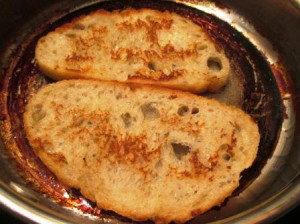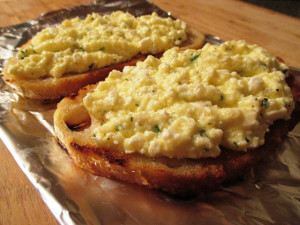 My parents were born and raised in Cairo, Egypt and in their adult years, they lived under the rule of Gamal Abdel Nasser. Nasser was an Arab Nationalist who came up through the ranks of the Egyptian military. As he rose to power, he formulated his goals to improve life in Egypt. He set out to do this by putting an end to colonialism (British occupation), abolishing the constitutional monarchy by overthrowing King Farouk and ultimately establishing a Republic with a new revolutionary government.
My parents were born and raised in Cairo, Egypt and in their adult years, they lived under the rule of Gamal Abdel Nasser. Nasser was an Arab Nationalist who came up through the ranks of the Egyptian military. As he rose to power, he formulated his goals to improve life in Egypt. He set out to do this by putting an end to colonialism (British occupation), abolishing the constitutional monarchy by overthrowing King Farouk and ultimately establishing a Republic with a new revolutionary government.
This was all well and good unless of course you fell into the category of foreign nationals or those he perceived to be non nationals. Both of my parents were of Greek heritage and although they and their families had lived in Egypt for many generations, they found themselves in this very difficult and undesirable category. Living in a country that was transitioning from oppression to independence with dignity, glory and freedom was tough enough, but made even more difficult for those who were being forcefully pushed out.
In 1952, confrontations between the military and ruling factions (monarchy) escalated provoking riots in Cairo and leaving many innocent people dead. My family and many of their friends considered leaving Egypt — but it was going to be difficult. Booking passage out of the country took time and money — none of which were readily available.
By 1962, my (very pregnant) mother and father had saved up enough money to leave the country. They decided as a family that they they would all leave together. This included my parents, my maternal grandparents and my uncle Tony (my mother’s only brother who was not well). Leaving a place they called home for so many generations was frightening for everyone, especially for my mother who was 8 months pregnant at the time. They packed their belongings into a few suitcases and set out for the unknown to start life over again.
By this time, many of their friends and other family members had already left for other countries like Australia, Brazil, Canada, Greece and South Africa. Many people did not have a choice in where they went – whichever country was open to immigration is where you ended up.
My family chose to go to Brazil because some family members had moved there several years before and had begun to establish roots. My family arrived, scrambled to learn the language and did all they could to find work. There were a lot of mouths to feed, and the expenses of a new baby. The large city of Sao Paolo was not easy to navigate and required your own transportation to move about. If you didn’t have your own car you were stuck using the unreliable public transportation which was not only frustrating but also dangerous. Securing a place to live was even more challenging requiring a signature from a Brazilian citizen who was willing to vouch for you.
They were unprepared for all of this, and the family members who had encouraged them to move to Brazil had not been forthcoming about all of these challenges. These same family members had also promised to help, yet were now less willing to make good on their assurances. After four very difficult years, my parents made the decision to leave Brazil. This particular decision was more heart wrenching. At the last minute, my maternal grandparents and my uncle Tony chose not to go with them — they did not want to be a burden to them and chose to stay behind. Their choice still haunts my mother to this day. They left Brazil and arrived in Melbourne, Australia in October of 1966.
After a difficult start, things began to fall into place fairly quickly. Australia was (and still is) a country that supports immigration. They understand that their investment in assisting new immigrants with secure employment, health care, education and housing will reap future benefits for their economy and the country as a whole. Before you knew it, familiar friends from Egypt were slowly being discovered and new ones were being made every day.
One day, my mother was shopping on Puckle Street, a bustling shopping area in Melbourne, and ran into a friend from Egypt named George Proestakis. He had moved to Australia a few years before and was now married with 4 children. His brother Vangelis was unmarried and was also living with the family. My uncle Vangelis was a free spirit who enjoyed his life as a bachelor. This did not stop him from being devoted to his 4 nieces and nephews — Georgia, Emanuel, Marilyn (Maz) and Nick. It was not uncommon to see children hanging around his neck or clutching his pant legs, not wanting to let him go. Although we were not blood relatives, I still called him my uncle and them, my cousins. I began to spend more and more time with the Proestakis family, and a few weekends here and there turned into spending entire summers with them.
I loved being with them because there was always someone to play with, and always something to do. My uncle Vangelis (who we called Professor) was a kind soul who was devoted to making all of us kids happy. A few times a week, he would would wake us early to prepare us for trips to the park, the beach, Luna Park (an amusement park) or the swimming pool.
Having to feed 5 hungry kids breakfast before leaving for our weekly adventure was no small feat. In those days, there was no such thing as a bowl of cereal, unless you meant oatmeal (porridge), so he began to prepare a concoction of egg and cheese on toast that we all came to love.
He would buy several loaves of fresh, artisanal bread from the local milk bar and cut it into nice, thick, hearty slices. He gently toasted them, then buttered each slice before spreading on a mix of whipped eggs, crumbled feta and mint. The slices were then baked in the oven — the the eggs would cook through and puff up slightly while the feta melted into the eggs. All of this was piled atop of this lovely buttered bread, that was crispy on the outside yet chewy inside. His weekly tray of bread slices were warm, gooey, satisfying and comforting.
It was not until many years later that I discovered what this delicious breakfast treat was called – it was a version of a Welsh Rarebit (or Welsh Rabbit) — something that was very English and had been enjoyed by many people for centuries. After all of these years, I still don’t know how he came about making it.
The traditional version involves making a savory sauce known as a Mornay sauce (béchamel sauce with cheese) that includes using some tasty ale, a good quality cheddar cheese, Worcestershire sauce, mustard and spices. The sauce is poured over toasted bread and baked until it has all melted together. Although ours was not made with cheddar, I admired his creativity because it was delicious nonetheless.
Shortly after I returned from a visit to Melbourne in 1994, I got the phone call that Professor had passed away. I was glad to have seen him one last time and to personally thank him for all he had done.
I find myself making this from time to time when I need a comforting hug from the past. Each bite reminds me of a familiar place where there were no worries — a place where dirty knees, contagious giggles and sticky fingers were not only welcomed, but encouraged.
Feta & Mint Welsh Rarebit (makes 4 pieces)
4 slices of artisanal loaf bread
6 tablespoons of crumbled feta
2 large eggs
1 ½ to 2 teaspoons dried mint
Soft butter (for bread)
ground pepper **optional
Crack the eggs into a small bowl and whisk, then add in all of the crumbled feta. Mix this together until you have a thick paste, then add in the dried mint.
Slice you bread and gently toast it. Remove the bread from the toaster and butter it generously then spoon on the egg and cheese mixture.
I like to make these in my toaster oven, but if you do not have one, place these on a greased pan or a pan lined with parchment paper and broil them in the oven by placing the tray on the highest rack. Bake them until the egg and cheese mixture has set and puffs up slightly. You know it is ready when it takes on a nice golden color all over. Serve warm with a side of fresh fruit, tossed salad or soup.




Leave a Reply